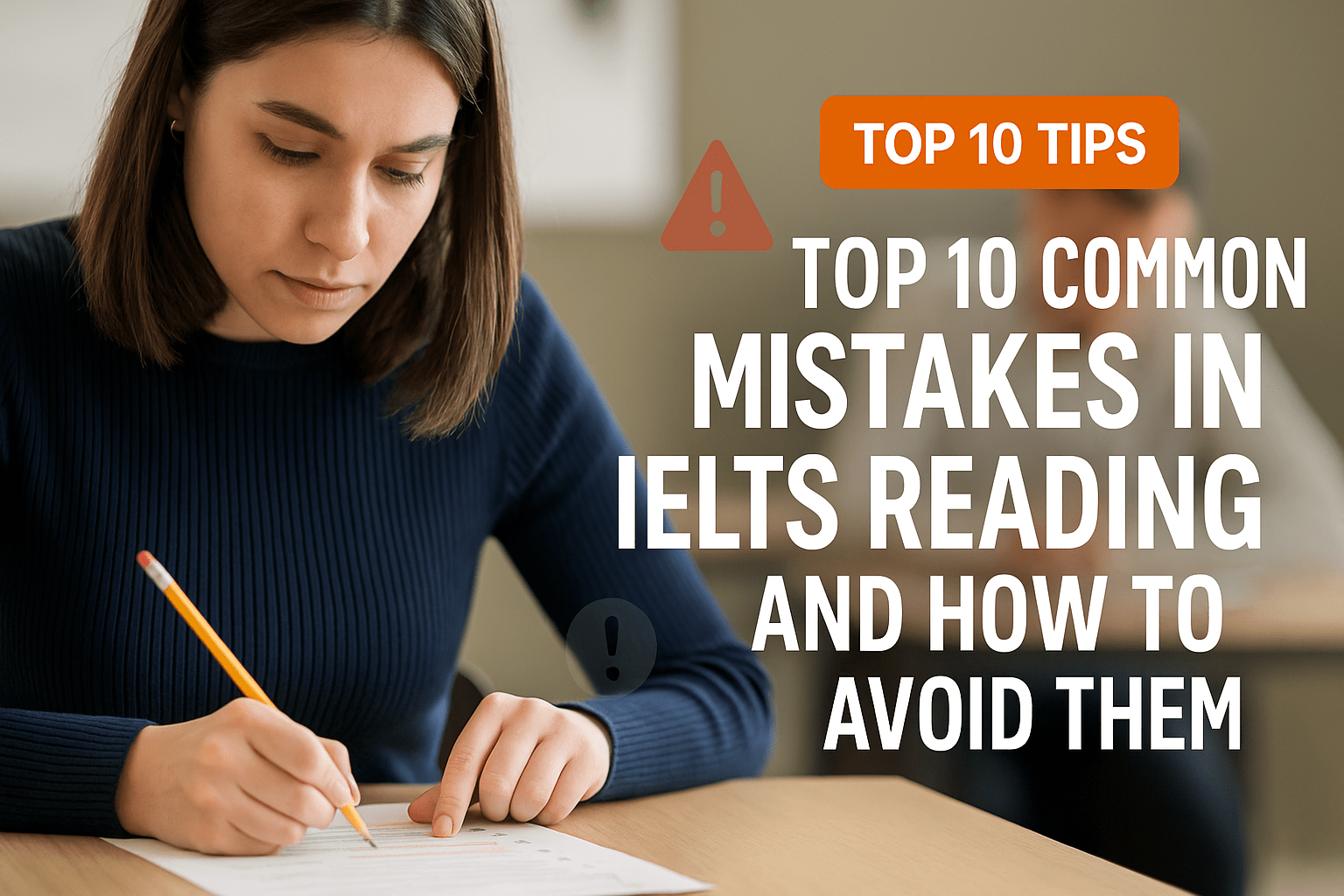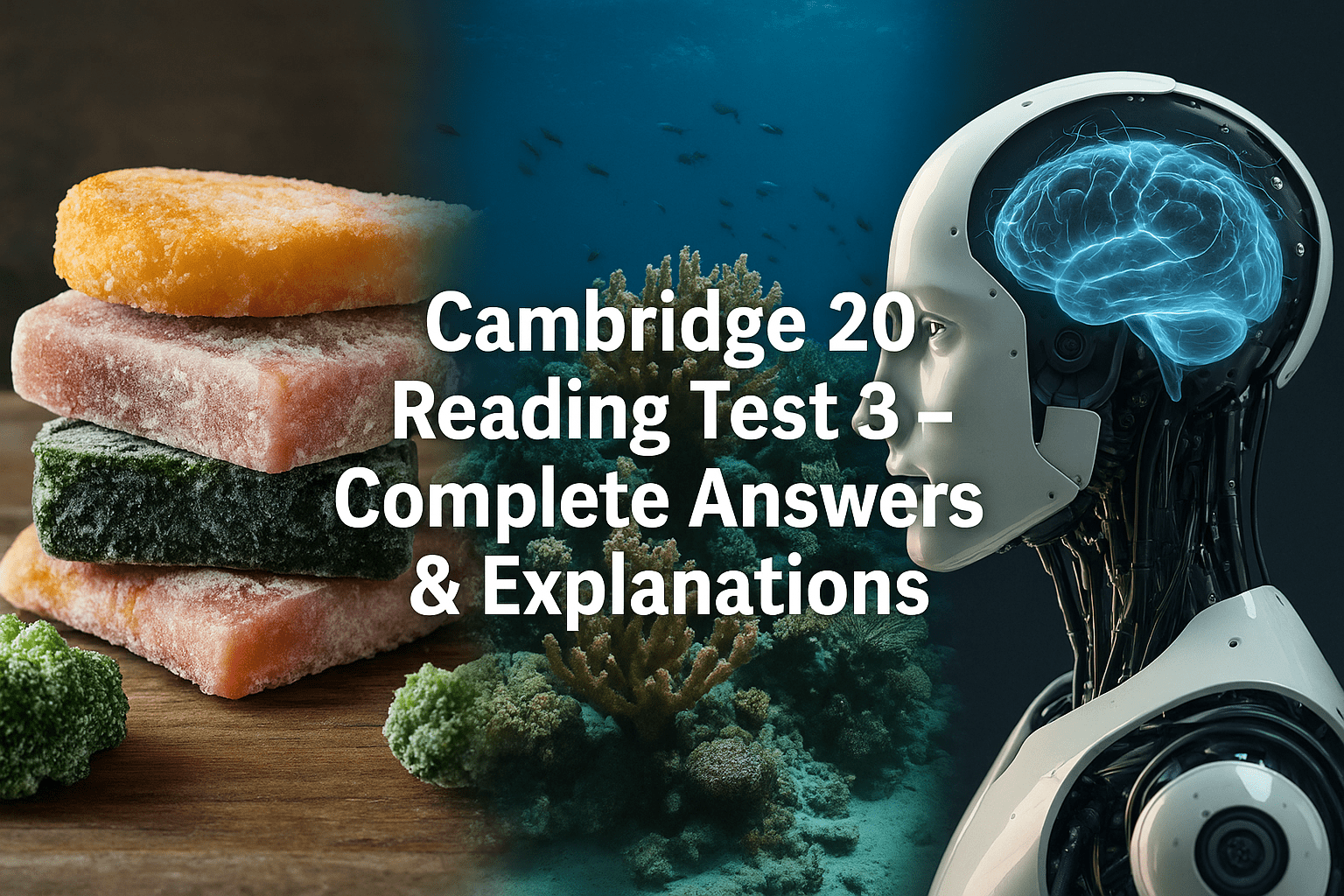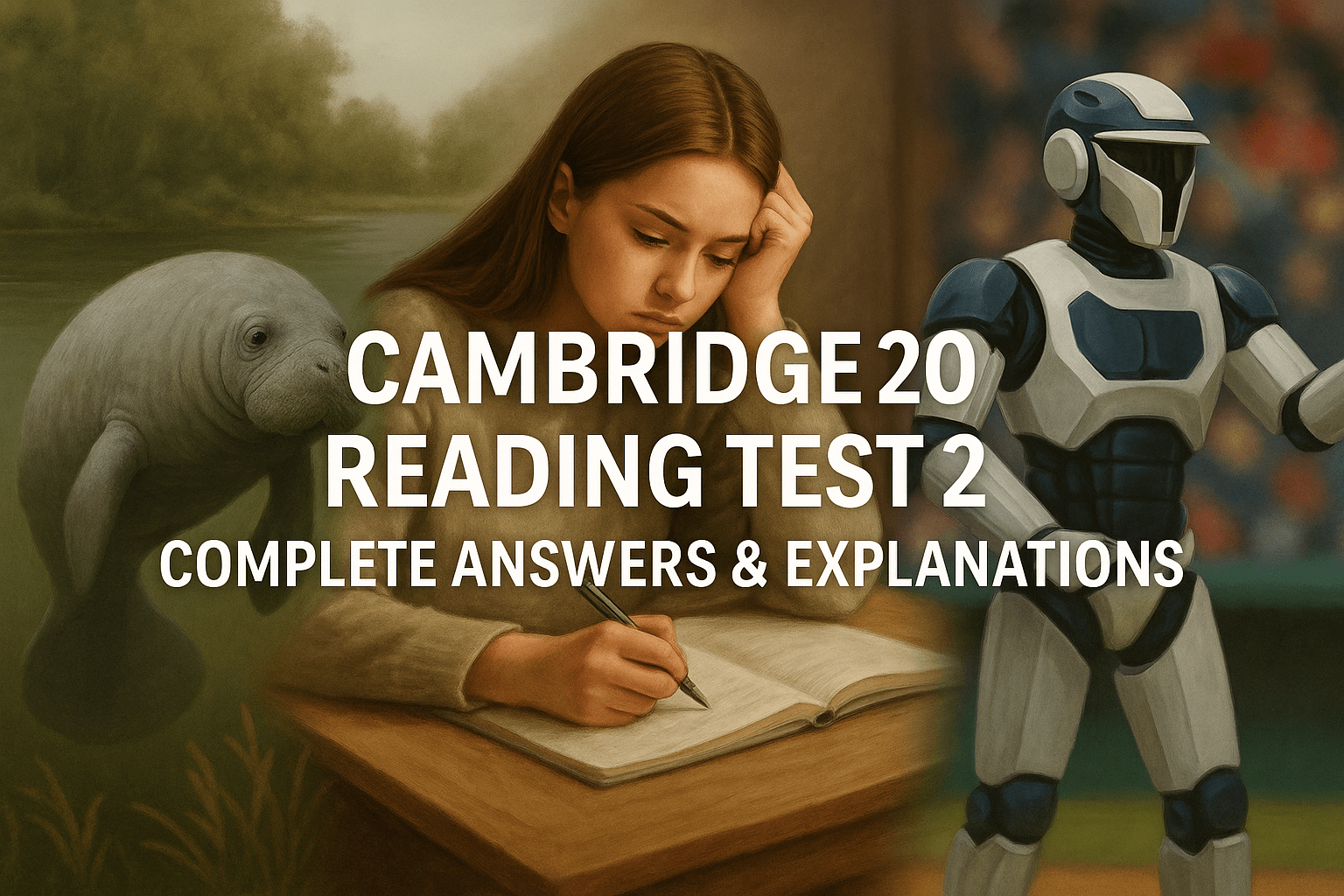- Misreading Instructions
- Ignoring Word Limits
- Falling for Trap Answers
- Not Skimming and Scanning Properly
- Spending Too Long on One Question
- Ignoring Synonyms and Paraphrasing
- Copying Spelling Errors
- Mixing Up True/False/Not Given with Yes/No/Not Given
- Ignoring Plural and Singular Forms
- Leaving Questions Blank
- ✅ Key Takeaways
- 🔹 FAQs
Here’s a full, SEO- and AEO-optimized blog post for your topic “Top 10 Common Mistakes in IELTS Reading and How to Avoid Them”, perfectly aligned with your guidelines:
Top 10 Common Mistakes in IELTS Reading and How to Avoid Them
When I first started teaching IELTS, I noticed one consistent pattern: most students don’t fail the reading test because of a lack of English skills, but because of IELTS reading mistakes. Misreading instructions, ignoring word limits, or falling for “trap answers” are problems I’ve seen with learners from over 20 countries. The good news? Each of these mistakes is avoidable with the right approach.
In this blog, I’ll share the top 10 mistakes I’ve seen students make, and more importantly, how to avoid them so you can boost your band score to 7+ confidently.
Misreading Instructions
One of the first things I teach my students is to read the instructions carefully. A lot of students lose easy marks because they rush and assume all tasks are the same.
Real student story:
A student in Vietnam once wrote “three words” for a “No more than TWO words” question. He got zero for that answer even though it was correct.
Solution:
- Always underline key instruction words like “no more than two words” or “choose three options only”.
- Pause for 5 seconds before answering to check if your response meets the requirement.
Learn all IELTS reading question types here.
Ignoring Word Limits
IELTS word limits are strict. Writing extra words, even if they’re correct, will cost you marks.
Tip from my class:
When doing short-answer or completion questions, count the words before you write them on the answer sheet.
Falling for Trap Answers
The IELTS reading test is full of distractors—answers that look correct but don’t match the passage logically.
Common scenario:
A student once selected an option simply because the keywords matched, without checking the meaning. It was a trap.
Avoid it by:
- Reading beyond the keyword to confirm the meaning.
- Checking for qualifiers like always, only, never, which can make an option incorrect.
For mastering this, I recommend checking IELTS Reading Skills for Band 7–9.
Not Skimming and Scanning Properly
Students often read every single word, wasting precious time. IELTS is a timed test, and efficient reading is essential.
Pro Tip:
- Skim for the main idea of each paragraph.
- Scan for specific keywords when answering questions.
You can also explore official advice on IELTS.org for more reading tips.
Spending Too Long on One Question
Time management is one of the biggest challenges. If you get stuck, move on and come back later.
My advice:
- Divide 60 minutes into 20 minutes per passage.
- Mark difficult questions and revisit them in the last 5 minutes.
Ignoring Synonyms and Paraphrasing
IELTS rarely copies the question words from the passage. Instead, it uses synonyms.
Example from my classroom:
A passage used the phrase “rapid growth”, while the question said “fast increase”.
To improve this skill, check IELTS Reading Vocabulary for Band 7–9.
Copying Spelling Errors
Even one wrong letter can cost you a mark. I’ve seen students write “enviroment” instead of “environment” after copying quickly.
Solution:
- Double-check spelling for every answer.
- Watch out for plural forms like students vs student.
Mixing Up True/False/Not Given with Yes/No/Not Given
Many learners confuse TFNG with YNNG, leading to mistakes.
Key reminder:
- True/False/Not Given → Factual statements in the passage.
- Yes/No/Not Given → Writer’s opinion or claim.
You can explore British Council’s guidance at takeielts.britishcouncil.org.
Ignoring Plural and Singular Forms
IELTS is grammar-sensitive. Writing “child” instead of “children” will be marked wrong.
Quick Check:
- Always match the passage’s form (singular/plural).
- Review your answers before transferring to the answer sheet.
Leaving Questions Blank
Even if you are unsure, never leave a question blank. IELTS does not penalize for wrong answers, so guessing is better than leaving it empty.
Strategy I teach:
- Eliminate obviously wrong options.
- Use logical deduction for the remaining choices.
For more test strategies, check IELTS IDP.
✅ Key Takeaways
Avoiding these IELTS reading mistakes can easily add 1–2 bands to your score. By carefully reading instructions, managing time, and recognizing traps, you will feel more confident and accurate during the test.
🔹 FAQs
Q1: How can I improve my IELTS reading speed?
Practice skimming and scanning daily. Start with 15 minutes of timed reading exercises and gradually reduce the time per passage.
Q2: Should I read the entire passage first or start with questions?
I recommend skimming the passage for the main idea first, then moving to the questions to save time and spot key areas quickly.
Q3: Are spelling mistakes penalized in IELTS reading?
Yes, spelling errors, including missing plurals or incorrect capitalization for proper nouns, will lose marks.
Q4: Where can I practice official IELTS reading tests?
Check IELTS.org and British Council for authentic materials.





